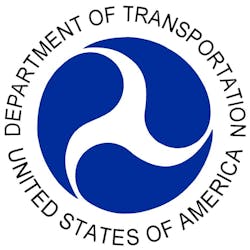FMCSA releases crash weighting analysis
The Federal Motor Carrier Safety Administration (FMCSA) announced through the Federal Register a study that examined whether Police Accident Reports provide sufficient, consistent, and reliable information to support crash weighting determinations, whether a crash weighting determination process would offer an even stronger predictor of carrier crash risk than the current assessment method, and how the agency might reasonably manage and support a process for making crash weighting determinations, including the acceptance of public input. The announcement invites public comment along with a request for feedback on what steps the agency should take regarding the weighting of crash data in the agency’s systems based on the carrier’s role in a crash.
Presently, the agency considers all recordable crashes involving a commercial motor vehicle occurring in the preceding 24 months as an assessment within its Safety Measurement System, which quantifies the on-the-road safety performance of motor carriers to prioritize enforcement resources.
Independent research has demonstrated that a motor carrier’s involvement in a crash, regardless of their role in the crash, is a strong indicator of their future crash risk.
The study examined Police Accident Reports obtained from two national dataset: the National Highway Traffic Safety Administration (NHTSA) Fatality Analysis Reporting System (FARS) and the National Motor Vehicle Crash Causation Survey (NMVCCS). Various statistical and analytical approaches were employed to assess crash weighting benefits including an analysis of motor carriers involved in single-vehicle fatal crashes over time.
Changing the crash weights based on a motor carrier’s role in the crash did not appear to improve the ability to predict future crash rates when all crashes are considered. There also was concern about the reliability of using Police Accident Reports to make this determination. The study pointed out that implementing a crash weighting effort on a national scale would require a method for uniformly acquiring final Police Accident Reports, a process and system for uniform analysis, and a method for receiving and analyzing public input.
It is estimated that the annual costs for operating a system to process Police Accident Reports, including the acceptance of public input and reviewing appeals, would be between $3.9 million and $11.2 million. The public is invited to review the full report and provide feedback.
